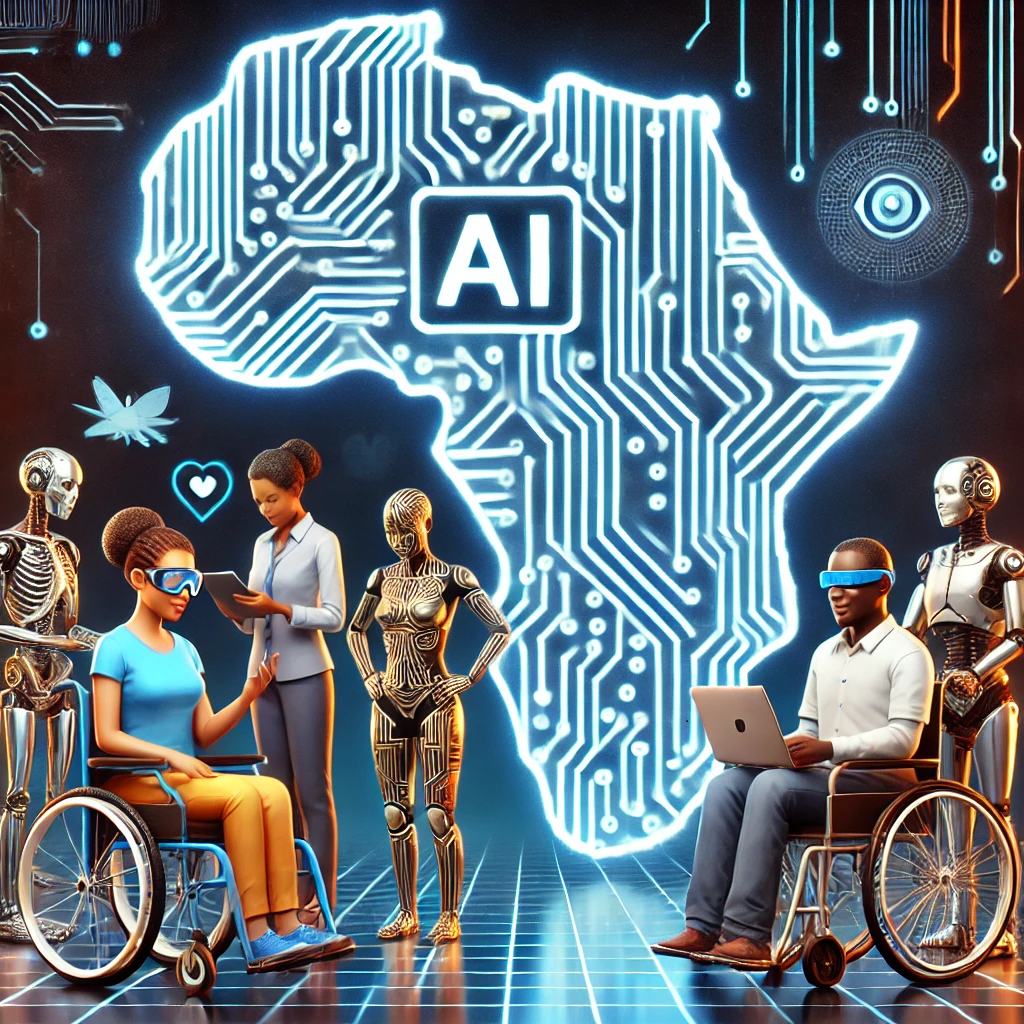Physical Address
304 North Cardinal St.
Dorchester Center, MA 02124
Physical Address
304 North Cardinal St.
Dorchester Center, MA 02124


Artificial Intelligence is a transformative force that is reshaping our existence, including how disabled people interact with the world. From enhancing communication to improving mobility, AI-powered tools are breaking down barriers and creating opportunities for inclusion. For Africa, where accessibility and affordability are critical, these innovations offer a chance to ensure that no one is left behind in the AI revolution.
AI Tools for Vision Impairment
For those with visual impairments, AI is opening up new ways to navigate the world. Apps like Be My AI and Seeing AI use smartphone cameras to describe surroundings, read text, and even identify objects. These tools are particularly useful for tasks like reading expiration dates on food or navigating public transport. Google Lens, another powerful tool, allows users to search for information using images, making it easier to identify objects or text in real-time.
These tools are not just convenient but also life-changing. For example, a blind person can now independently shop for groceries or read a restaurant menu without assistance. In Africa, where access to assistive technologies is often limited, these AI tools could be game-changers if made affordable or free.
AI for Hearing Impairment
For those with hearing impairments, AI is revolutionizing communication. Apps like Ava and RogerVoice provide real-time transcription of conversations, making it easier for deaf individuals to participate in meetings or social interactions. These apps can also translate spoken language into text or sign language, bridging communication gaps.
Another breakthrough is Orka Two, an AI-powered hearing aid that adjusts to different environments, filtering out background noise to enhance speech clarity. For communities, where hearing aids are often expensive and hard to access, such innovations could be life-altering .
AI for Cognitive and Learning Disabilities
AI is also making strides in supporting individuals with cognitive and learning disabilities. Tools like Goblin Tools help break down complex tasks into manageable steps, making daily life easier for those with executive dysfunction. Google Lens can assist with reading and understanding text, while Helpicto translates written instructions into visual symbols, aiding comprehension.
For individuals with brain injuries, AI-powered tools like ChatGPT can help with memory, communication, and even generating personalised treatment plans. These tools are great assistance and they empower independence and improve quality of life.
AI for Mobility and Daily Living
AI is also transforming mobility and daily living for disabled individuals. Smart home technologies, such as Alexa, can remind users to take medication, lock doors, or turn off appliances, reducing the cognitive load for those with memory impairments. Self-driving cars, though still in development, hold the promise of restoring independence to those who can no longer drive due to disabilities.
These AI assistive devices and solutions could be transformative. However, affordability is key to most part of the world. Governments, NGOs, and tech companies must collaborate to ensure these tools are accessible to all, regardless of income.
The Need for Affordability and Accessibility in Africa
While AI offers incredible potential, its benefits must be accessible to everyone, especially in the rural areas and inner cities. Many of these tools are currently expensive or require high-end smartphones, which are out of reach for many. To truly leave no one behind, AI tools must be affordable, if not free, and designed with local contexts in mind.
Tech companies and governments should work together to subsidise costs, develop low-cost alternatives, and ensure that AI tools are available in local languages. For example, Microsoft’s Copilot – a tool that helps create accessible content – could be adapted for African languages and made available at low or no cost.
AI for Inclusion
AI has the power to transform the lives of disabled individuals, offering tools that enhance independence, communication, and quality of life. For Africa, the challenge is to ensure these innovations are affordable and accessible to all. By prioritizing inclusion and collaboration, we can harness the power of AI to create a world where no one is left behind.
Let’s work together to ensure that everyone, regardless of location, ability or income, can benefit from the opportunities AI brings.
Please share this article to spread awareness about the power of AI for inclusion.
Be an advocate for affordable and accessible AI tools in Africa and beyond.
——
Obi Umegbolu is a serial entrepreneur and innovation leader with 20+ years of experience founding and scaling ventures, including two successful startup exits. Currently advise UK business leaders on the government-endorsed Help to Grow Management Programme, driving sustainable growth strategies. Lead the AI for Africa Thinktank, advancing accessible AI education to empower businesses and educators across Africa. Co-authored a British Computing Society guide on evolving data strategies, helping organisations navigate the data-driven landscape. Partner with startups and SMEs to turn innovation into actionable goals to achieve impactful results.
Elizabeth Aghaulor is an Associate at Kenna Partners and the founder of Star_Treasure Academia. As a versatile professional, she is a writer, author, and public speaker who shares insightful perspectives on law, technology, personal development, and leadership amongst others. Elizabeth is also a Chartered Mediator and Conciliator. As a lawyer, her practice areas spans across dispute resolution, maritime law, telecommunications, media, and technology. As a passionate Artificial Intelligence enthusiast, Elizabeth serves as an Ambassador for “AI for Africa.”